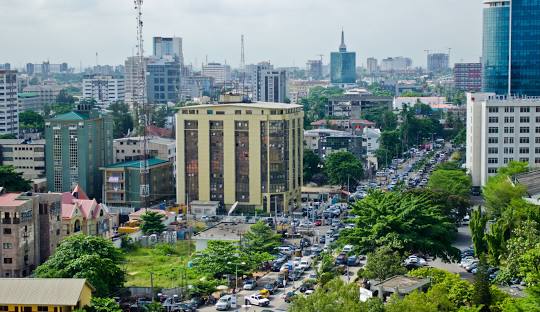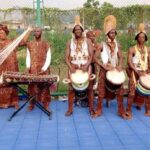Cultural Diversity in Nigeria
Delving into the cultures of Nigeria is akin to embarking on a journey through a kaleidoscope of traditions, languages, art forms, cuisines, and belief systems. As one of the most populous and diverse countries in Africa, Nigeria boasts a rich tapestry of cultural heritage, shaped by centuries of history, migration, trade, and interaction. In this comprehensive exploration, we will traverse the landscapes of Nigeria’s cultural landscape, uncovering the vibrancy, complexity, and resilience of its myriad ethnic groups, each contributing to the country’s collective identity and dynamism.
Introduction to Nigeria: Land of Diversity
Nigeria, located in West Africa, is often referred to as the “Giant of Africa” due to its large population, economic potential, and cultural significance. With over 250 ethnic groups and more than 500 languages spoken, Nigeria is a mosaic of cultures, traditions, and customs. Its geographical diversity, spanning from the Sahel in the north to the coastal plains in the south, further enriches its cultural tapestry, influencing everything from agriculture to cuisine.
Historical Overview
Nigeria’s cultural landscape has been shaped by a complex interplay of indigenous civilizations, transatlantic trade, colonialism, and post-colonial nation-building. Prior to European colonization, the region was home to several powerful kingdoms and empires, including the Hausa city-states, the Yoruba kingdoms, and the Igbo-speaking communities. These civilizations developed sophisticated political systems, artistic traditions, and religious practices, laying the foundations for Nigeria’s diverse cultural heritage.
The arrival of European traders and colonizers in the 15th century brought profound changes to Nigeria’s social, economic, and cultural landscape. The transatlantic slave trade resulted in the forced displacement of millions of Africans, leading to the dispersion of cultural practices and the formation of diasporic communities in the Americas. Subsequent colonization by the British in the 19th century further reshaped Nigeria’s society, as European powers imposed political boundaries, introduced new technologies, and imposed their languages and legal systems.
Ethnic Diversity and Language
One of the defining features of Nigerian culture is its ethnic diversity, with hundreds of distinct ethnic groups, each with its own language, traditions, and social structures. The three largest ethnic groups in Nigeria are the Hausa-Fulani in the north, the Yoruba in the southwest, and the Igbo in the southeast. However, Nigeria is also home to numerous other ethnic groups, including the Edo, Ijaw, Kanuri, Tiv, and Ibibio, among others.
Language serves as a crucial marker of identity and cultural heritage in Nigeria, with hundreds of languages spoken across the country. The official language is English, inherited from British colonial rule, but indigenous languages play a vital role in everyday communication, cultural expression, and identity formation. The linguistic diversity of Nigeria reflects its complex history of migration, trade, and interaction, with each language representing a unique repository of knowledge, worldview, and oral tradition.
Religion and Belief Systems
Nigeria is a religiously diverse country, with Islam, Christianity, and indigenous African religions coexisting alongside each other. Islam is predominant in the northern region of Nigeria, particularly among the Hausa-Fulani ethnic group, while Christianity is more prevalent in the south, especially among the Yoruba and Igbo. Indigenous African religions, characterized by animism, ancestor worship, and polytheism, continue to influence cultural practices and belief systems across Nigeria, particularly in rural areas.
Religion plays a central role in Nigerian society, shaping social norms, political dynamics, and cultural expression. Religious festivals, such as Eid al-Fitr and Christmas, are celebrated with fervor and enthusiasm across the country, showcasing the diversity of religious practices and traditions. However, religious diversity in Nigeria has also been a source of tension and conflict, particularly in regions where different religious communities compete for political power and resources.
Art, Music, and Literature
Nigeria has a rich and vibrant artistic tradition, encompassing a wide range of visual arts, music, dance, and literature. Traditional art forms, such as sculpture, pottery, weaving, and beadwork, reflect the cultural diversity and creativity of Nigeria’s indigenous peoples. Nigerian artists have also gained international recognition for their contributions to contemporary art, with prominent figures such as Ben Enwonwu, El Anatsui, and Chinua Achebe garnering acclaim for their work.
Music is an integral part of Nigerian culture, encompassing a diverse array of genres, including Afrobeat, highlife, juju, fuji, and hip-hop. Nigerian musicians, such as Fela Kuti, King Sunny Ade, and Burna Boy, have achieved global fame for their innovative sounds and powerful lyrics, which often address social, political, and cultural issues. Nigerian literature, likewise, has made significant contributions to world literature, with writers such as Chinua Achebe, Wole Soyinka, and Chimamanda Ngozi Adichie receiving international acclaim for their novels, poems, and essays.
Cuisine and Festivals
Nigerian cuisine is as diverse as its cultural landscape, reflecting the culinary traditions of its various ethnic groups and regions. Staple foods include rice, yams, cassava, and maize, which are often served with a variety of soups, stews, and sauces made from ingredients such as palm oil, groundnut, and spices. Popular dishes include jollof rice, pounded yam with egusi soup, suya (grilled meat), and moi moi (steamed bean pudding).
Festivals play an important role in Nigerian culture, serving as occasions for communal celebration, religious observance, and cultural expression. Traditional festivals, such as the Durbar festival in the north, the Osun-Osogbo festival in the southwest, and the New Yam festival in the southeast, feature colorful parades, music, dance, and rituals that highlight the cultural heritage and identity of Nigeria’s diverse ethnic groups. These festivals also attract tourists from around the world, contributing to the promotion of cultural tourism and economic development.
Challenges and Opportunities
While Nigeria’s cultural diversity is a source of strength and resilience, it also presents challenges in terms of nation-building, social cohesion, and sustainable development. Ethnic and religious tensions, political instability, and economic inequality have contributed to social unrest and conflict in Nigeria, threatening the country’s cultural heritage and collective identity. Moreover, rapid urbanization, environmental degradation, and globalization pose additional challenges to the preservation and promotion of Nigeria’s cultural diversity.
However, Nigeria’s cultural diversity also presents opportunities for innovation, creativity, and intercultural dialogue. By embracing and celebrating its rich cultural heritage, Nigeria can harness the power of cultural diversity to foster social cohesion, economic development, and national unity. Initiatives that promote cultural exchange, interethnic dialogue, and cultural education can help to bridge divides, foster mutual understanding, and build a more inclusive and resilient society.
Nigeria’s cultural diversity is a testament to the richness, complexity, and resilience of its people. From the ancient kingdoms of the past to the vibrant multiculturalism of the present, Nigeria’s cultural heritage reflects centuries of history, migration, trade, and interaction. By embracing and celebrating its diverse ethnic groups, languages, religions, arts, and cuisines, Nigeria can harness the power of cultural diversity to build a more inclusive, equitable, and prosperous society for future generations. As Nigeria continues to navigate the challenges and opportunities of the 21st century, its cultural heritage will remain a source of strength, inspiration, and identity for its people and the world.
OUR GALLERY







